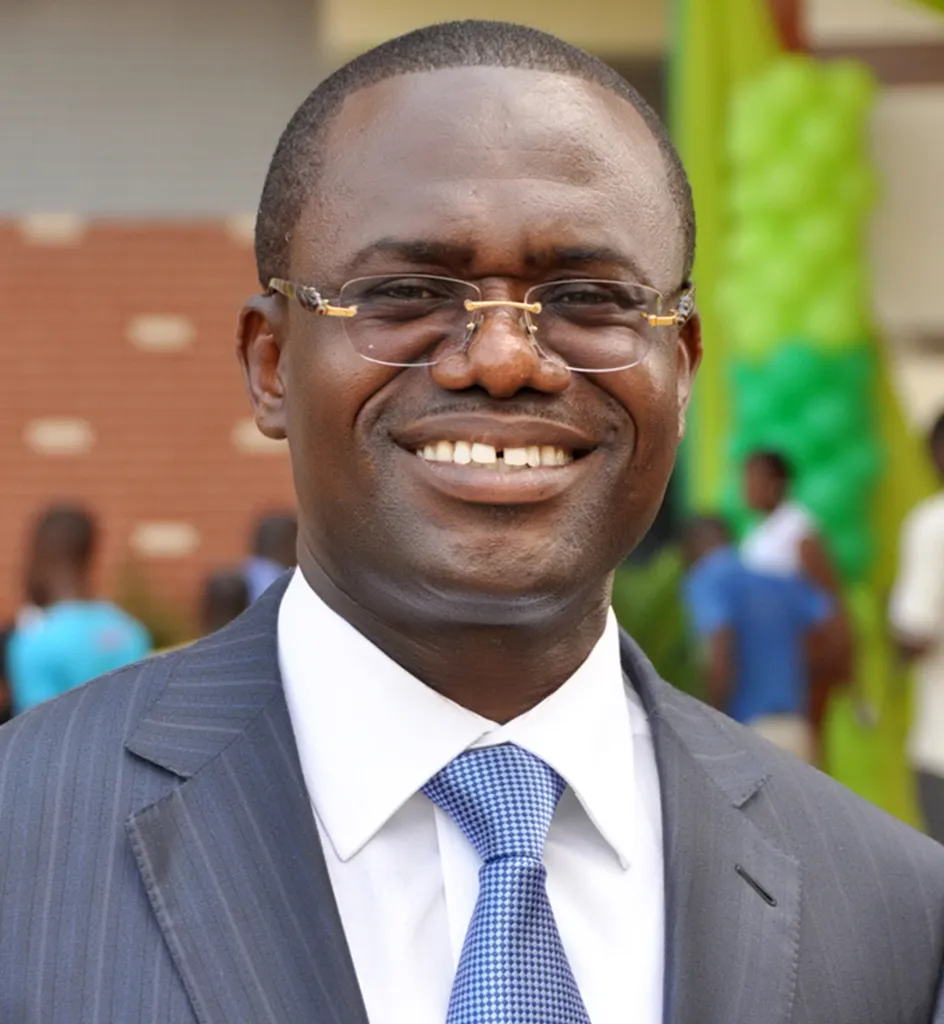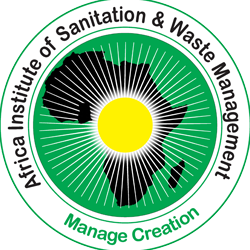Inaugural Speeches

MESSAGE FROM PROF. KWAMENA AHWOI
Ghana Institute of Management and Public Administration (GIMPA)
PNDC Secretary (minister) Of Local Government (1988-1993)
Minister of Local Government (1993-2000)
As Ghana’s longest-serving Minister of Local Government (1988-2000) and the Minister in whose time the architecture of Ghana’s Decentralization Programme was constructed and implemented, I am proud to be among the most enthusiastic supporters of The Africa Institute of Sanitation and Waste Management (AISWAM) and should be one of the first to welcome the Institute on to the decentralized local government scene. An Institute such as AISWAM is long overdue, as a logical consequence of the decision to decentralize critical service provision functions to the Metropolitan, Municipal and District Assemblies (MMDAs) within the framework of the principle of subsidiary.
We have decentralized the sanitation and waste management function to the MMDAs, but we have not developed the capacity of the MMDAs to manage the waste; and neither have we developed the awareness of the localities, communities and the general public to the dangers of indiscriminate waste disposal and of their real costs. This is what AISWAM has set out to do. Capacity-building is a sine qua non to effective decentralization.
Unfortunately, capacity-building has often been seen as necessary for political, administrative, planning and fiscal decentralization only. Yet what makes decentralization an attractive governance option for residents of localities and communities is its ability to deliver services efficiently, cheaply and timorously. Sanitation and waste management are two of those “cradle to grave” services which human beings ignore at their peril, yet seldom do we hear of initiatives or institutions specifically set up to manage waste effectively, efficiently and scientifically. AISWAM has therefore come at a most opportune time to fill a vacuous gap that has been crying to be filled. The Institute’s vision of making Ghana and West Africa a cleaner, greener and healthier environment is in accord with the original vision of using Ghana’s decentralization programme to deliver on district-level development and effective service delivery.
AISWAM must however not see itself as an exclusively academic enclave, insisting on qualifications and specialized admission requirements for all its programmes. The real movers and shakers of sanitation and waste management in Ghana are the uneducated and not-so-educated sanitation and waste management staff and employees of the MMDAs. The Institute must specifically target them and formulate custom-made capacity-building programmes for them so that their knowledge can be improved, and their capacities built to enable Ghanaians have real practical benefit from the Institute’s existence. I welcome AISWAM on board Ghana’s decentralization train.
I hope that it will stay true to its vision so that Ghana’s attainment of middle-income status will be manifested not only in wealth generation and wealth distribution but also in a salubrious environment where best practices in sanitation and waste management will become a matter of routine and not a matter of exhortation. I wish AISWAM all the best.
Professor Kwamena Ahwoi
GIMPA

MESSAGE FROM DR. JOSEPH SIAW AGYAPONG
Jospong Group of Companies Ghana Limited.
Executive Chairman
A LIFELONG DREAM OF DR. JOSEPH AGYEPONG COMES TRUE
Located in the affluent suburb of East Legon in Accra, Ghana stands a seven-story building which has raised eyebrows since it neared completion a few weeks ago. This building is now home to The Africa Institute of Sanitation and Waste Management. The Institute is now one of over 37 sister companies which focus on oil and gas, mining, construction, real estate, printing, waste management and other ventures.
The Institute stems from a long-held dream of seeing a change in the environmental health of not only Ghana but Africa as a whole and was established to produce a highly qualified team of human resource professionals for the sanitation industry in West Africa. The Institute is the brainchild of Dr. Joseph Siaw Agyepong, the Executive Chairman of the Zoomlion Group of Companies, who is the recipient of numerous national and international awards for his services to Ghana.
Construction of the Institute began in 2007. Dr. Agyepong reveals “When I started the waste management business, the lack of capacity is what brought the idea to me...to develop an institute that will train the human resource and be a laboratory of new technologies and products bringing waste management in the sub-region to meet the demands of the 21st Century. This I believe will bridge the gaping rift between theory and practice in our country.”
The Institute which towers above the national head offices of leading West African Waste Management company, Zoomlion Ghana Limited and the Zoomlion Group of Companies, boasts a set of state-of-the-art research and computer laboratories, modern lecture halls and offices
for both teaching and non-teaching staff that are arguably second to none in West Africa.
A number of events including the hosting of short, courses in partnership with the University of Western Ontario, Canada, and the inauguration of the Board of Trustees, have been held to mark the opening of the Institute (affiliated to the Kwame Nkrumah University of Science and Technology (KNUST)). The Board consists of Chairman Professor William Otoo Ellis, Vice Chancellor of KNUST, Mr. Yebo-Okrah, Registrar of KNUST, Professor Ernest Yanful of the University of Western Ontario, Mr. Nana Oduro Kwarteng, Chief Director of the Ministry of Local Government and Rural Development, Dr. Joseph Siaw Agyepong and Coordinator of the Institute, Dr. Patrick Cline. According to Dr. Cline, the Institute is set to become the centre of research and repository knowledge for the waste management sector in Africa. In addition, waste management training services will be offered to organizations both public and private that specialize in creating waste products.
“When I started the waste management business, the lack of capacity is what brought the idea to me...to develop an institute that will train the human resource and be a laboratory of new technologies and products bringing waste management in the sub-region to meet the demands of the 21st Century. This I believe will bridge the gaping rift between theory and practice in our country.”
The Waste Management Institute follows the completion of the Compost and Recycling Plant Project at Medie, near Accra; with several other projects and ideas from Dr. Agyepong in the pipeline including a liquid waste treatment plant as well as a plastic waste bin plant. He states, “Once I get the inspiration from God to start a new business, I cannot help but move forward and press on till it is done, and this is the story of this Institute, I give all the glory to God Almighty.”
Dr. Joseph Siaw-Agyepong
Executive Chairman
Jospong Group of Companies Ghana Limited.

